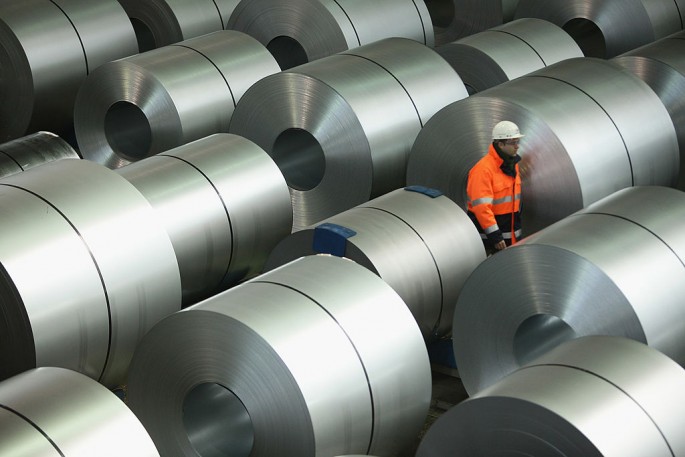China was enraged after the United States threatened possible trade sanctions after the Asian country failed to iron out its steel overcapacity problems.
According to Reuters, the U.S. warned China and other major steel-producing countries experiencing overcapacity to make concrete actions in solving the issue if they do not want to face trade actions.
China's Reaction to Trade Sanctions Threat
A joint statement from U.S. Trade Representative Michael Froman and U.S. Secretary of Commerce Penny Pritzker revealed that "unless China starts to take timely and concrete actions to reduce its excess production and capacity in industries including steel," they will be facing major trade consequences.
"The fundamental structural problems in the industry will remain and affected governments--including the United States--will have no alternatives other than trade action to avoid harm to their domestic industries and workers," the statement read.
This became the subject of an angry response from Chinese authorities who, together with more than 30 other countries, failed to come up with a solution even after convening in Belgium on Monday.
Apparently, Washington is pointing fingers on why the talks had failed, leaving Beijing at the receiving end of the criticism.
When asked about their next step on the steel overcapacity issue on Tuesday, China's Ministry of Commerce spokesperson Shen Danyang told Reuters: "China has already done more than enough. What more do you want us to do?"
According to Shen, the problem is not with the overproduction of steel but the "poor appetite" of the consumers.
"Steel is the food of industry, the food of economic development. At present, the major problem is that countries that need food have a poor appetite so it looks like there's too much food," he explained.
Steel Overcapacity
While Chinese authorities may deny this, analysts still believe that steel overcapacity is the main problem.
A report from the South China Morning Post cited some of them who believe that reforms in the industry are necessary to solve the problem.
"Two mounting issues have kept the Politburo worried: employment and debt, which could undermine social/financial stability," analysts Howard Lau and Po Wei of the Jefferies' equities wrote in January. "Policy response now makes us believe closure will be slow and Chinese steel will continue to flood the international markets."
According to SCMP, the country's steel plant utilization remained at about 67 percent in 2015, a significant decrease from the 85 percent recorded when the industry was on the roll from 2000 to 2008.



























